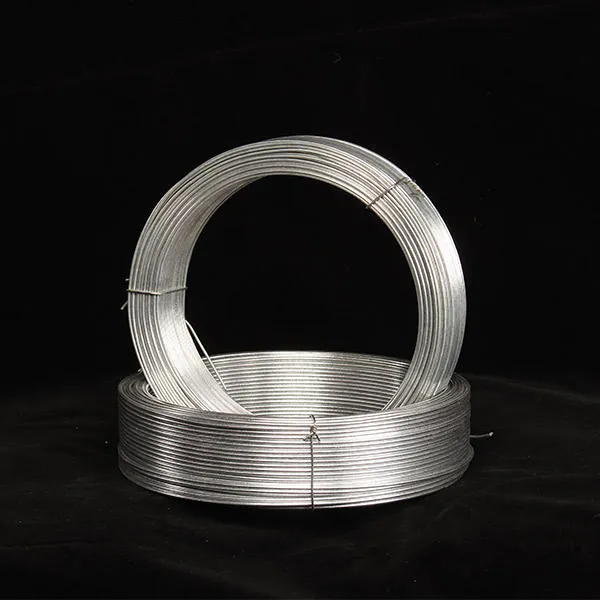Dec . 25, 2024 15:32 צוריק צו רשימה
Measures and Development of Delaying Rust of Galvanized Wire
The rust of galvanized wire mainly shows two forms, one is surface corrosion. This kind of corrosion is usually manifested as the oxidation of zinc layer, forming a white zinc oxide. This oxide layer has a certain protective effect, but it may gradually lose its protective effect with the passage of time. Usually, this kind of surface corrosion has little effect on the use of galvanized wire unless the corrosion is serious.

The other is pitting corrosion. Pitting corrosion is a kind of local corrosion, which usually occurs where the galvanized layer is scratched, rubbed or affected by other external factors. When pitting corrosion is serious, the galvanized layer will gradually expand from small points, which will eventually lead to the complete exposure of the iron wire and serious rust. So how to delay this situation?
How to Delay the Rust of Galvanized Wire?
Although galvanized wire can't avoid rusting, we can effectively delay its rusting process through some measures:
Choose suitable galvanized wire: When purchasing galvanized wire, you should choose iron wire with thick galvanized layer, especially in the harsh use environment. Hot dipped galvanized iron wire can provide more lasting anti-corrosion effect than עלעקטראָ גאַלוואַנייזד דראָט ייגל.
Regular inspection and maintenance: check the condition of galvanized wire regularly, especially the iron wire exposed to wet and corrosive environment. Where damage is found, it should be repaired in time to prevent further corrosion. For long-term use of galvanized iron welded wire mesh, a layer of anticorrosive paint can be coated to enhance its corrosion resistance.
Avoid use in harsh environment: if conditions permit, avoid exposing galvanized wire to extreme environment for a long time, especially salt fog, acid or alkaline environment. When using galvanized wire in coastal areas, you can choose thicker and more corrosion-resistant materials, or check and maintain them regularly.
Protective zinc coating: During use, physical damage to the zinc coating should be avoided as far as possible. If mechanical damage occurs, it can be repaired with special anticorrosive paint to ensure the integrity of zinc layer.
Development Prospect of Galvanized Wire in the Future
With the continuous advancement of industrialization, the application of galvanized welded mesh in various industries will continue to grow. Especially in the construction industry, transportation facilities, agriculture and environmental protection industries, galvanized wire will play an increasingly important role. In addition, with the enhancement of environmental awareness, the advantages of galvanized wire in recycling will be further highlighted and become a key material to promote sustainable development.
In the future, with the continuous innovation of production technology, the corrosion resistance, mechanical properties and environmental protection of galvanized wire will be continuously improved to better meet the needs of various high-standard applications. For example, adopting more environmentally-friendly galvanizing technology can improve the durability and anti-pollution ability of galvanized layer, further prolong the service life of galvanized wire, and make it an irreplaceable important material in more industries.
Although galvanized wire has strong anti-corrosion ability, it is not completely rust-free. With environmental factors, service conditions and wear of galvanized layer, galvanized wire may also rust. Understanding the rust mechanism and influencing factors of galvanized wire can help us to choose, use and maintain galvanized wire better, prolong its service life and ensure its maximum benefit in various applications.
-
How PVC Welded Wire Mesh Enhances Industrial Safety Standards
נייַעסJul.23,2025
-
Hexagonal Wire Mesh Innovations for Coastal Protection Projects
נייַעסJul.23,2025
-
Galvanized Wire Fence Maintenance Tips for Harsh Weather Conditions
נייַעסJul.23,2025
-
Galvanized Steel Grating Applications in Industrial Flooring Solutions
נייַעסJul.23,2025
-
Energy Absorption Capabilities of Twisted Square Bars in Seismic-Resistant Structures
נייַעסJul.23,2025
-
Affordable Chain Link Fence Gate Options for Residential Security
נייַעסJul.23,2025

